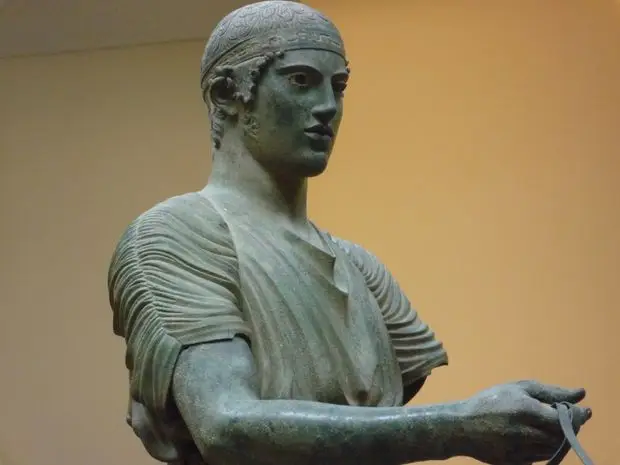Remnants of its glorious past make Greece a unique cultural destination with extraordinary energy and appeal. A walk around the magnificent monuments of Athens, on the same soil where democracy, art, drama, science, sculpture, and philosophy flourished centuries ago, is an uplifting experience for any traveller.
From the Bronze Age civilizations of Mycenae, Knossos and Santorini to the Classical giants of Athens, Sparta, Rhodes and Delphi; from the Byzantine wonders of Mystras, Monemvasia and Patmos to the modern comforts and pleasures on offer in Athens and Thessaloniki. The sights of Ancient, Medieval and Modern Greece are simply world-class.
Famous in the western world as the birthplace of history, philosophy, theatre, the Olympic Games and democracy (among much else), Greece has witnessed the passage of some of the ancient world’s most gifted individuals. It should be noted here that history itself is a discipline that was first conceived in ancient Greece. Herodotus (484-425 BC) is considered the “Father of History” and was the first to record the events and human actions for the sole purpose of handing down to future generations.
Less well known is Greece’s later role as an important part of the Byzantine world, and as a province in the Ottoman Empire. Its winding path through history has endowed Greece with a variety of archaeological and architectural jewels from all ages, as well as a series of world-class museums devoted to its ancient heritage and its modern culture. Millennia’s worth of history are housed in the country’s many museums as well as in countless in-situ ruins and archaeological sites – eternal reminders of a past that shaped the western civilization.
The history of Greece can be traced back to Stone Age hunters. Later came early farmers and the Minoan and Mycenaean civilizations. This was followed by a period of wars and invasions, known as the Middle Ages. Around 1100 BC, the people of the Dorians invaded from the north and spread along the west coast. In the period 500-336 BC, Greece was divided into small city-states, each of which consisted of a city with the surrounding countryside.
The ancient Greek classical and Hellenistic eras are without doubt the most beautiful times, having left behind a myriad of ideas, concepts and the basics of what we now call ‘Western civilization’. However, the previous two millennia leading to these ancient times, as well as the following two millennia, are all part of the history of Greece leaving an equally rich cultural imprint on the territory. Much of Greek civilization has survived either directly or through changes to the present day.
The entire country’s rich heritage guarantees that a visitor is a short way from a piece of palpable history anywhere in Greece. Whether it’s sun-bleached antiquities, awe-inspiring ancient theatres, excavation sites in progress, or remains of beautiful, centuries-old churches, the feeling of walking on the very soil where events that shaped humanity took place over the millennia is intense and all-pervading.

